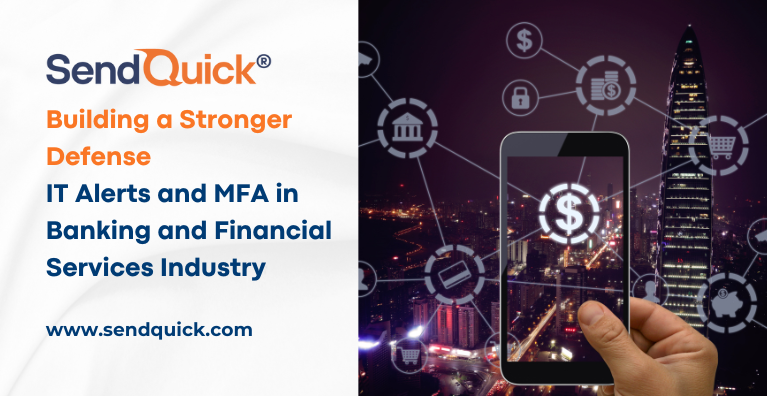In the banking and financial services industry (FSI), being ahead of the curve is not just a competitive advantage; it is a necessity. With technology evolving at a rapid pace, the need for robust IT alert strategies has never been more critical. In this blog post, we will delve into the significance of IT alerts and how Multi-Factor Authentication (MFA) is essential to secure remote access and help banks and FSIs stay ahead of potential cyber threats.
The Importance of IT Alerts
IT alerts are notifications that inform IT teams about potential issues or threats within a system. They play a vital role in maintaining the security and integrity of banking and FSI systems. By providing real-time information about potential vulnerabilities or breaches, IT alerts enable organizations to respond quickly and effectively, minimizing the impact of any potential threats.
However, not all IT alerts are created equal. To be truly effective, IT alert strategies must be tailored to the specific needs and challenges of banking and FSI organizations. This means identifying the most critical systems and data, as well as the most likely threats, and developing a comprehensive alert strategy that addresses these risks.
The Role of Multi-Factor Authentication (MFA)
MFA is a security measure that requires users to provide multiple forms of identification before accessing a system or application. This typically involves a combination of something the user knows (such as a password), something the user has (such as a smartphone or token), and something the user is (such as a fingerprint or facial recognition).
MFA is an effective way to enhance security and protect against unauthorized access. By requiring multiple forms of identification, MFA makes it much more difficult for attackers to gain access to sensitive data or systems. For example, SendQuick Conexa simplifies security with MFA options eg. Singpass or Yoti digital ID login, FIDO-2 capable Yubikey, one-time password via SMS, email, soft token and push authentication.
The use of MFA is particularly important in banking and FSI, where the stakes are high and the potential impact of a breach can be severe.
Implementing MFA
Implementing MFA in banking and FSI organizations requires careful planning and consideration. It is important to choose the right MFA solution for your organization, given the variety of MFA options available, one that balances security with usability and convenience.
Additionally, it is important to educate users about the importance of MFA and how to use it effectively.
Conclusion
In conclusion, building a stronger defense in the banking and FSI industry requires a proactive approach to IT alerts and security. By implementing robust IT alert strategies and MFA, organizations can better protect their systems and data, and stay one step ahead of potential threats.
For more information on securing remote access with MFA and keeping key IT personnel informed real-time on potential cyber threats or issues causing system downtime, contact SendQuick at https://www.sendquick.com/contact-us/ to learn more.






